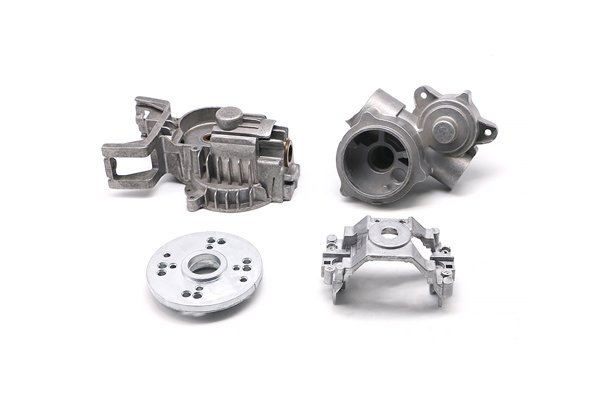Did you know that the global CNC machining market is expected to reach a staggering $100 billion by 2025, driven significantly by the demand for custom parts in various sectors, particularly with materials like plastic? As industries evolve and adapt to modern technologies, the pursuit of precision and customization has never been more pivotal, especially when it comes to components like plastic connectors.
In this comprehensive blog post, we’ll explore the multiple benefits of CNC machining for custom plastic connectors. From understanding the core technology to recognizing its applications, advantages, and trends, this guide is designed to be an invaluable resource for anyone seeking information on this essential manufacturing process.
Understanding CNC Machining
What is CNC Machining?
CNC, or Computer Numerical Control machining, is a manufacturing process that uses programmed computer software to dictate the movement of factory tools and machinery. This technology allows for greater accuracy and efficiency than manual control, enabling the production of complex shapes and designs.
The Basics of CNC Machining for Plastic Connectors
While CNC machining can encompass various materials such as metals, wood, and composites, our focus will specifically be on plastics. CNC machining involves the following steps:
Advantages of CNC Machining for Custom Plastic Connectors
One of the most significant advantages of CNC machining is its ability to produce extremely precise parts. With tolerances reaching ±0.01 mm or even finer, CNC machined plastic connectors provide an ideal solution for applications demanding high accuracy, such as medical devices or electronic components. Consistency in dimensional accuracy is crucial, especially when multiple connectors must fit seamlessly into a larger assembly.
Unlike traditional methods, CNC machining excels at creating complex geometries. Manufacturers can produce intricate designs that would be impossible or prohibitively expensive with other processes. Whether you’re looking for connectors with unique threading designs or ones that incorporate various shapes, CNC machining allows for complete customization.
CNC machines operate continuously, significantly speeding up the production process. This efficiency is particularly beneficial in producing small to medium batch sizes. As a result, manufacturers can respond quickly to market demands and reduce lead times, fulfilling smaller orders with ease.
Initially, the setup cost for CNC machining can seem daunting. However, the long-term savings are apparent when considering the decrease in labor costs, material waste, and the speed of production. For companies that require consistent production of custom plastic connectors, the return on investment (ROI) can be substantial.
CNC machining is compatible with a wide range of plastic materials, each with its own mechanical properties. This versatility allows manufacturers to choose the right material suited for specific applications. For example, for connectors exposed to harsh chemicals or extreme temperatures, materials like nylon or polycarbonate may be preferred due to their superior durability.
Aside from cost-efficiency, CNC machining minimizes waste thanks to its subtractive nature. Unlike additive manufacturing that layers materials upon each other, CNC removes material only where necessary to create the final part. As industries become more aware of their environmental impact, this advantage helps companies adopt more sustainable manufacturing practices.
Applications of Custom Plastic Connectors in Various Industries
In the automotive industry, electrical plastic connectors play a crucial role in connecting various components of a vehicle. Their reliability is paramount due to the high stakes involved in vehicle safety and functionality. Customized plastic connectors manufactured using CNC machining offer precise fitment and durable performance, essential for automotive assemblies.

From medical devices to surgical instruments, the healthcare sector requires highly sterile, precise, and reliable components. Custom plastic connectors produced via CNC machining support medical devices with intricate designs, maintaining the necessary hygiene standards required in this industry.
The electronics industry benefits immensely from custom plastic connectors, which facilitate connections between various internal components. Using CNC machining, manufacturers can create connectors that accommodate specific electronic designs and shielding requirements, helping manage signal integrity.
Custom plastic connectors are invaluable in telecommunications, where they enable the connection of cables and hardware. CNC machining’s precision allows the production of connectors that ensure optimal performance, minimizing signal degradation.
In the aerospace sector, every component must adhere to strict standards. CNC-machined plastic connectors offer lightweight characteristics while maintaining structural integrity, essential for the performance and safety of aircraft.
Trends Influencing CNC Machining for Plastic Connectors
The CNC machining industry continually evolves with advancements in software and hardware. Innovations such as 5-axis machining allow manufacturers to create even more intricate designs, increasing the range of applications for custom plastic connectors.
With the rise of Industry 4.0, automation plays an increasingly significant role in manufacturing. Leveraging smart technology and IoT within CNC machining can enhance efficiency, monitor performance, and reduce downtime.
The demand for customized solutions is growing across industries. Businesses prefer unique designs tailored precisely to their requirements, trending toward short-run productions that CNC machining can support.
As environmental concerns become more universal, CNC machining’s ability to reduce waste makes it an attractive option. Manufacturers are focusing on sustainable materials and processes, collaborating with suppliers who share similar values.
Overcoming Challenges in CNC Machining for Plastic Connectors
While CNC machining is versatile, it’s vital to understand the limitations associated with different plastics. Manufacturers must perform thorough testing and validation to ensure that the selected materials meet the required performance standards for specific applications.
As mentioned earlier, the initial investment in CNC machinery can be significant. Companies need to weigh these costs against the long-term benefits, considering aspects like production volume, complexity of designs, and quality control.
Operating CNC machines requires skilled personnel who understand how to manage, calibrate, and maintain the equipment. Investing in training programs ensures that staff are proficient and capable of maximizing the potential of CNC machining.
CNC machining for custom plastic connectors represents a critical contributor to modern manufacturing across various industries. From unparalleled precision to customization and cost-effectiveness, the benefits are manifold.
By understanding CNC machining’s fundamental principles, advantages, applications, and emerging trends, manufacturers can make informed decisions and strategically invest in this transformative technology. As industries evolve and new challenges arise, CNC machining offers effective solutions tailored to meet the needs of today’s complex manufacturing landscape.
Ultimately, whether you are an engineer, business owner, or a curious reader, it’s crucial to appreciate the impact that CNC machining has on producing vital components like custom plastic connectors. The technology not only facilitates innovation but also paves the way for a sustainable and efficient future in manufacturing.
In exploring this topic, we see that thinking critically about manufacturing processes and material choice is necessary for achieving both functional and environmental goals. Therefore, it’s worth contemplating how CNC machining can fit into your strategy for growth and adaptability in an ever-changing market.






